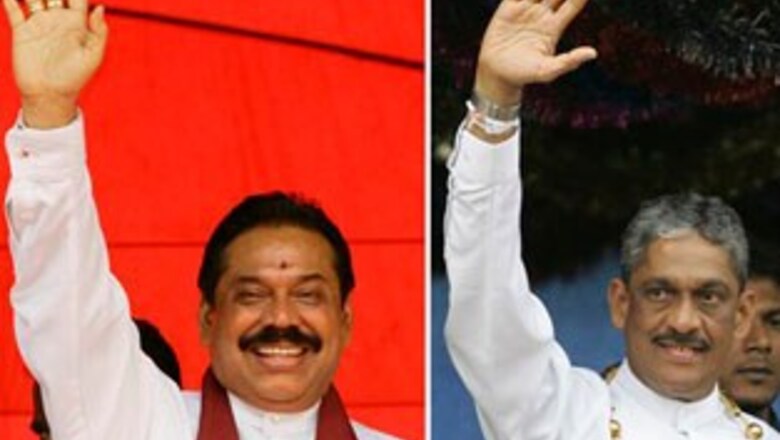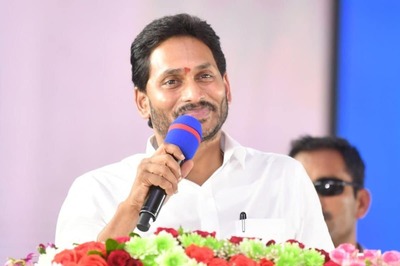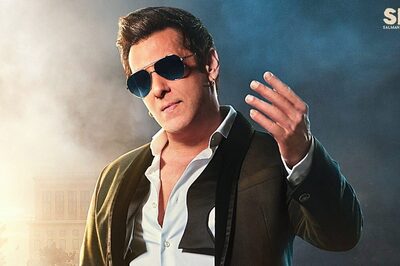
views
COLOMBO: Sri Lankans vote today in the country's first nationwide election since the end of a 25-year conflict in May, with two former allies who lay claim to the victory vying to rebuild a nation finally without war.
More than 1.4 crore people are registered to vote, against a backdrop of heavy security and tension that election day will be as bloody as the campaign, in which five were killed and more than 800 violent incidents were recorded.
More than 68,000 police and a quarter-million election officials have spread out across the Indian Ocean island, which for the first time in nearly three decades votes without the fear of suicide blasts or attacks by the Tamil Tiger separatists.
President Mahinda Rajapaksa and former General Sarath Fonseka are the surprising rivals in a contest in which the defeat of the Liberation Tigers of Tamil Eelam (LTTE) in May has figured heavily in campaigning, with both claiming credit.
Whoever wins will take the reins of a 40 billion dollar economy still waiting to taste the real fruits of peace, despite some large Indian and Chinese investments into infrastructure and a stock market that was one of 2009's best performers.
Both have urged their supporters to remain calm, and pledged to respect the electoral process. Fonseka has alleged Rajapaksa is planning to use the military to stay in power should he lose, which the government denies.
WAR LEADERS SPLIT
Rajapaksa as commander-in-chief and Fonseka as the army commander stood side-by-side after the victory in May, but within months split over what the general said was his sidelining by the president and unfounded accusations he was plotting a coup.
A motley coalition of opposition parties with divergent ideologies have joined to support Fonseka with the sole aim of beating the incumbent.
There are no reliable opinion polls, but the consensus is that Fonseka and Rajapaksa are running a close race, while the 20 other candidates are not expected to get many votes. Since the main contenders are expected to split the Sinhalese ethnic majority's vote base, about 75 per cent of the nation's 21 million people, the remaining minority vote becomes crucial.
Tamils make up about 12 per cent and for the first time in decades will be able to vote without the LTTE dictating their choice. Muslims and so-called Estate Tamils, who were brought from India to work on tea plantations under British colonial rule, will also figure in the minority vote bloc.
Both Fonseka and Rajapaksa are confident of victory.
Sri Lanka's official government news portal reported on 25 January: ''Clairvoyant predicts incumbent President's victory''. Many Sri Lankans, politicians included, take heed of astrological predictions.
The president called the vote two years early, hoping to parlay his war victory into a second six-year term.
There is little difference between the Rajapaksa and Fonseka campaign platforms, both of which are heavy on populist subsidies, pledges of pay raises to Sri Lanka's bloated public sector and promises of rural development.




















Comments
0 comment